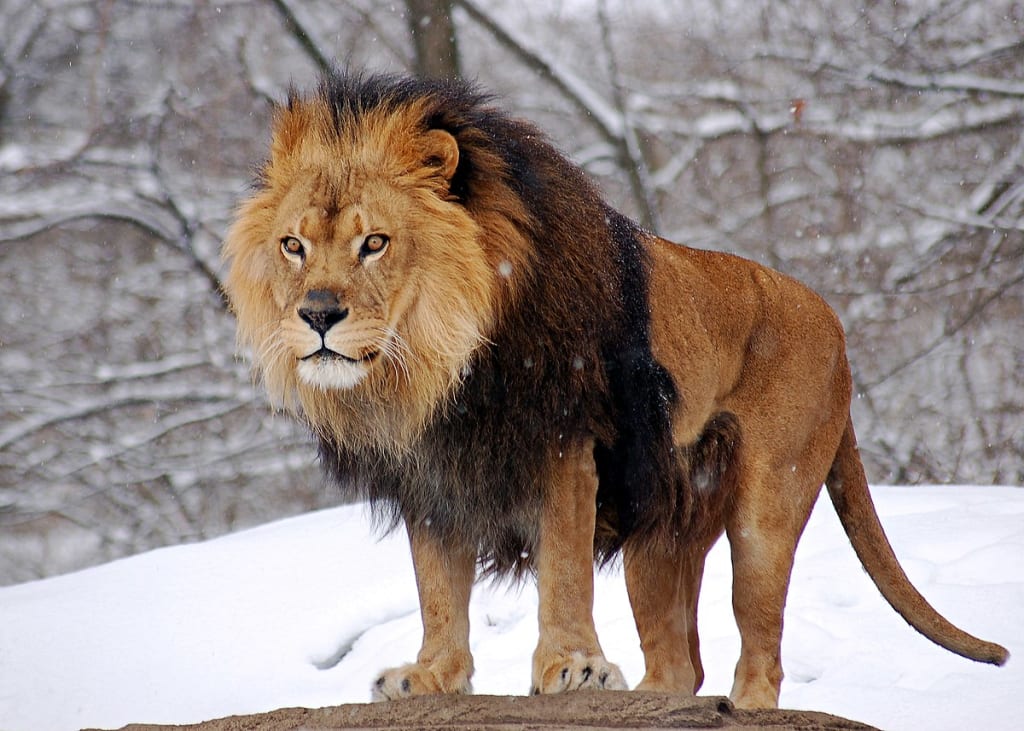
The lion, scientifically known as Panthera leo, is one of the most iconic and majestic creatures on Earth. Known as the king of the jungle, this formidable animal has captivated the human imagination for centuries.
Lions are primarily found in sub-Saharan Africa, although a small population can also be found in the Gir Forest of India. They are known for their distinctive appearance, with a muscular body, short coat, and a large, majestic mane that surrounds the male lion's face.
These majestic creatures are known for their social behavior, as they live in prides consisting of several related females, their young, and one or more dominant males. The pride structure is vital for their survival as it helps in hunting, defending territories, and raising their offspring.
Speaking of hunting, lions are apex predators and are well-known for their hunting prowess. They primarily feed on large ungulates such as zebras, wildebeests, and buffalos. The females often work together to bring down their prey, using their strength, stealth, and team coordination to their advantage. Male lions, on the other hand, play a crucial role in defending the pride's territory and ensuring the safety of the pride and its cubs.
Interestingly, male lions are known for their impressive roar, which can be heard from a distance of up to eight kilometers. Roaring serves various purposes, including communication with other lions, asserting dominance, and marking territory boundaries.
One of the fascinating aspects of lion behavior is their social structure. The female lions are the primary hunters and work together to provide for the pride. They are also responsible for caring for the cubs and teaching them essential survival skills. The male lions, while not typically involved in hunting, contribute to the pride's protection and take charge of defending their territories against rival males.
Lions have also been a significant part of human history and culture. They have been revered and feared in many civilizations, symbolizing power, courage, and majesty. In ancient Egyptian culture, for example, lions were associated with gods and pharaohs, appearing in their art and architectural structures.
Unfortunately, like many other species, lions are facing numerous challenges today. Habitat loss, poaching, and human-wildlife conflicts have led to a decline in their population. Conservation efforts are critical in ensuring the survival of these incredible creatures for future generations to appreciate and admire.
Various conservation organizations and initiatives are working towards protecting lion populations and their habitats. These efforts include community-based conservation programs that aim to involve local communities in conservation activities, such as sustainable livestock practices and eco-tourism.
Furthermore, raising awareness about the importance of lions and their role in ecosystems is crucial. Lions, as apex predators, help maintain the balance of the ecosystem by regulating prey populations and preventing overgrazing.
In conclusion, lions are awe-inspiring creatures that symbolize power, courage, and majesty. Their distinctive appearance, social behavior, and hunting prowess have captivated humans throughout history. However, they face numerous threats today, emphasizing the need for conservation efforts to ensure their survival. By protecting their habitats and involving local communities, we can work towards safeguarding these magnificent animals for future generations to admire and appreciate their beauty and significance in the natural world.





Comments
There are no comments for this story
Be the first to respond and start the conversation.